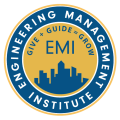Discussions about achieving success are typically approached in one dimension. We talk about vision, breadth of experience and work/life balance in stovepipe segments as if one doesn’t influence the other. Much of the blogging and books on success I’ve read follow this track. They touch on the three dimensions, but only on that dimension. The truth is, however, that success we realize in any undertaking comes about only through our actions in three dimensions. A better approach to thinking about success takes into account our own vision, our vista (breadth of experience) and volume (depth we give to each undertaking).
Working on any one dimension is good but it leaves value on the table. We don’t get the benefit of identifying the interrelations, or lack of them, between, the dimensions. For example, let’s say your vision for success in life includes ‘providing guidance to others and using my engineering skills to help my community’. If your breadth of experience includes prior leadership roles and the knowledge of the engineering challenges and opportunities at the community level, then your vision and vista align. On the other hand, if you’ve never been in a leadership role and therefore lack experience on how to guide others, then your vision and vista are out of alignment. You’ll need to identify an opportunity where you can fill the gap on leadership to develop your skill in guiding others.
Thinking 3-dimensionally about our approach to generating success breaks down mental firewalls between what we want (vision), what we know (vista), and how invested we are in making it all come together (volume).
Vision. Without a vision you’re operating in an ad hoc fashion. You won’t know a true opportunity when it’s presented because you’ll not have a clearly defined understanding of what you want to be, do and have from life or whatever task you’re engaged in. When aligned with your vista of knowledge and volume of engagement, you’re ability to bring success into existence is assured.
Vista. Your vista of life is the breadth of knowledge, experience, and skills you’ve developed to this point in life. It’s your panoramic view to everything that makes up you. However, when you lack knowledge, experience or skill in relation to your vision, achieving your vision will be hampered. It’s only when you fill the gap in knowledge/experience/skill that you’ll be able to bring your vision into reality. When aligned with volume, you have the motivation/energy to go after what you need to make your vision happen.
Volume. Your volume of life is related to how much connection, or depth, you get out of everything you do. Let’s say you spend 15 minutes with your kids before heading to work but during that time you’re reading the paper. The volume of the connection with you kids is small – it might be 15 minutes but the depth of the connection is a veneer. Instead, you spend only 5 minutes talking about what they’ll be doing at summer camp that day and actively listening to their energetic response. You just increased the volume of your connection by making it deep. It’s ten minute’s less, but it was fully focused on them. With regards to your vision and vista, when your volume is low don’t plan on achieving success. Put another way, when you’re out of bandwidth, you won’t be achieving your vision. On the other hand, when you’re fully focused on what you’re doing this moment, you’ll better align with your vision and enable your vista to expand.
We live in a world of three dimensions and interrelations. Everything in our environment is linked in many ways, some obvious and others beyond comprehension. The same holds true for how our vision, vista and volume interact. Align the three and your internal gyroscope will keep you on the path.
“It is a terrible thing to see and have no vision.” Helen Keller
“The length of your education is less important than its breadth, and the length of your life is less important than its depth.” Marilyn vos Savant
[widgets_on_pages id=”TECC Free Resources”]
Onward,
Christian J. Knutson, P.E., PMP
Engineering Management Institute
